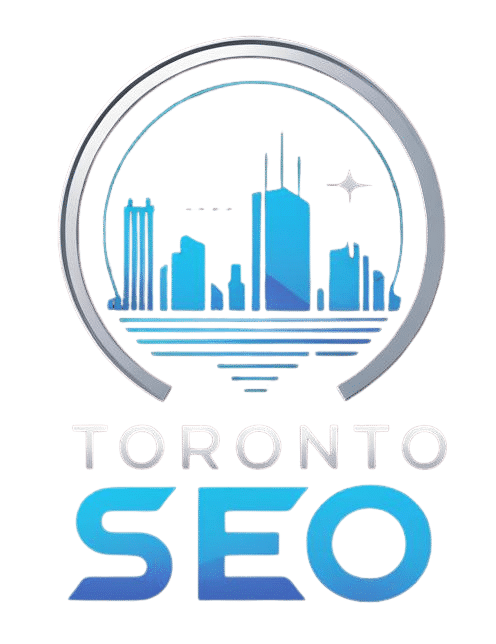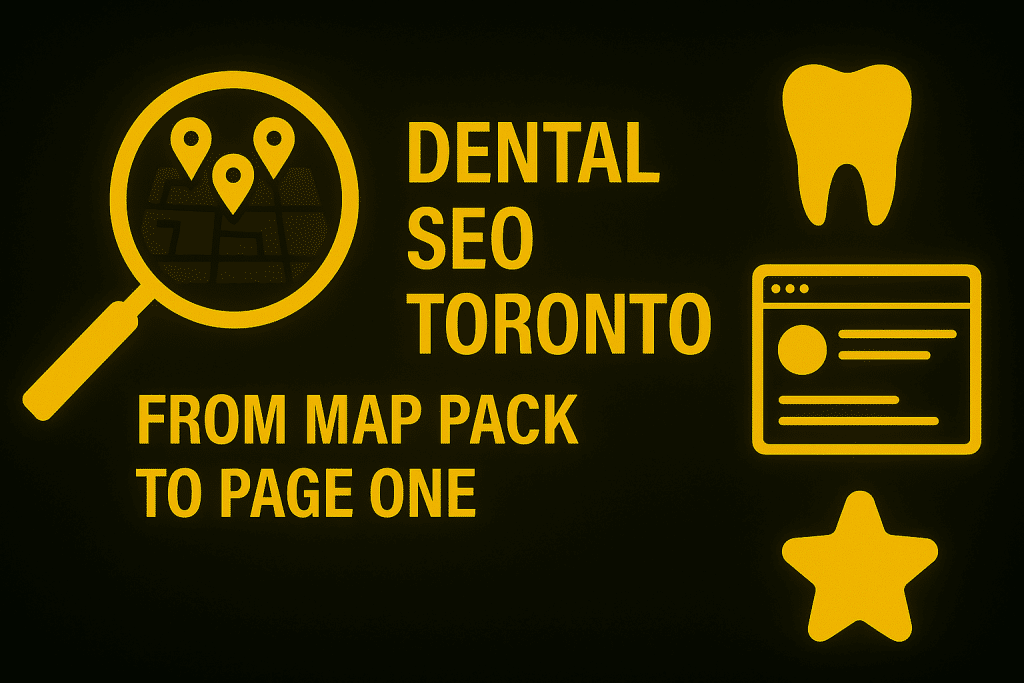Ranking at the top of Google for “lawyer near me,” “divorce lawyer Toronto,” or “immigration attorney in Toronto” is no longer optional for ambitious law firms. Toronto’s legal market is crowded, competitive, and dominated by firms that understand local search intent. Winning these searches means attracting ready-to-convert clients, building authority in your niche, and turning your online presence into a lead-generation engine.
This comprehensive guide breaks down how Toronto law firms can dominate local SEO for high-intent “near me” terms, covering everything from keyword targeting and Google Business Profile optimization to content clustering and AI-driven strategies.
Why “Near Me” Searches Are the Highest-Value Opportunities
When someone searches “family lawyer near me” or “criminal lawyer Toronto,” they are not looking for legal definitions — they’re looking for immediate solutions. Google treats these local-intent queries differently by prioritizing:
Google Business Profiles (GBP) in the Local 3-Pack
Local organic results tied to service and location pages
Review signals, NAP consistency, and behavioral engagement
According to Google’s own local search data, nearly 76% of people who conduct a local search visit a business within 24 hours. For law firms, this is a direct pipeline to consultations and case signings.
Building a Local SEO Foundation for Toronto Law Firms
1. Claim and Optimize Your Google Business Profile
The GBP is the single most powerful ranking lever for local legal searches. It dictates visibility in the Map Pack and influences organic rankings.
Key optimization steps:
Use your exact law firm name (no keyword stuffing).
Choose the most relevant categories (e.g., “Family Law Attorney,” “Immigration Lawyer”).
Add service areas covering Downtown Toronto, North York, Scarborough, Etobicoke, and nearby cities in the GTA.
Include professional photos, office images, and lawyer headshots.
Add structured service listings with unique descriptions.
Link your GBP to optimized location pages on your website. This creates a local authority signal loop between your profile and your domain.
For deeper insight on ranking in the 3-Pack, see Toronto Local SEO: Why Your Business Isn’t Showing Up on Google Maps.
2. Structure Your Website Around Location + Service Pages
Generic “Our Services” pages don’t rank. Google rewards specific, intent-matched pages like:
/family-lawyer-toronto//immigration-lawyer-downtown-toronto//criminal-defense-lawyer-north-york/
Each page should target one practice area and one geo modifier. Use keyword-rich H1/H2 tags, structured data (LocalBusiness schema), and answer frequently asked legal questions directly on the page.
Internal linking plays a critical role here. For example, connecting these service pages to content on Content Optimization for Rankings ensures that authority flows throughout your domain.
3. Build Content Clusters Around High-Intent Legal Topics
Creating one landing page isn’t enough to dominate SERPs. You need supporting blog content that reinforces your core pages. For example:
Main Page: /divorce-lawyer-toronto/
Supporting Content Ideas:
“5 Mistakes to Avoid During a Toronto Divorce”
“How Long Does a Divorce Take in Ontario?”
“Divorce Lawyer Fees in Toronto: What to Expect”
Use internal links between these supporting posts and the main service page. This “content silo” approach aligns perfectly with Toronto Keyword Research: Intent First strategies and gives Google clear topical relevance signals.
Advanced “Near Me” Keyword Targeting
1. Intent-Driven Keyword Research
Focus on transactional keywords with modifiers like:
“lawyer near me”
“best criminal lawyer Toronto”
“immigration law firm downtown Toronto”
“family lawyer open now”
Use tools like Google Keyword Planner and SEMrush to find volume and SERP features (e.g., Maps, People Also Ask). Prioritize keywords with a clear commercial intent rather than broad informational terms.
For a practical breakdown of how Toronto agencies identify and group such keywords, see Toronto Marketing Agencies Are Winning with AI-Driven Keyword Clustering in 2025.
2. Geo-Modifiers and Neighborhood Optimization
Toronto is segmented into highly searched neighborhoods. Target keywords for:
Downtown Core – “law firm Bay Street Toronto”
North York – “immigration lawyer North York”
Scarborough – “family lawyer Scarborough”
Etobicoke – “real estate lawyer Etobicoke”
Yorkville, The Annex, Liberty Village — for niche audiences and boutique practices.
Create separate landing pages or sections optimized for these areas. Add embedded maps and driving directions to improve local relevancy.
Earning Trust Through Reviews and Local Citations
Legal clients rely heavily on trust signals. Google weighs reviews, citations, and behavioral data heavily for “near me” rankings.

1. Collect and Respond to Google Reviews
Ask satisfied clients to leave reviews right after case resolution.
Include target keywords naturally (e.g., “Our family lawyer in Toronto helped us quickly”).
Respond professionally to every review.
Use review schema to display ratings on your site. This helps with both CTR and rankings.
2. Maintain NAP Consistency Across Directories
NAP = Name, Address, Phone number. Your firm’s details must match across:
Google Business Profile
Yelp, Yellow Pages, Bing Places
Law directories like Lexpert and Canadian Lawyer
Inconsistent citations weaken your local SEO signals. Tools like BrightLocal or manual auditing can help clean this up. For authoritative guidance, refer to Canada’s official business registration and address change guidelines.
Leveraging AI and Data for Competitive Advantage
Top Toronto SEO agencies are integrating AI and data analytics to optimize legal SEO faster than traditional methods. From automated content clustering to intent classification, machine learning models can help law firms identify underserved keyword opportunities and optimize landing pages dynamically.
For example, AI can:
Identify rising “near me” trends faster than manual methods.
Auto-generate structured FAQs for local SEO.
Analyze competitor GBP updates and react faster.
This aligns with emerging strategies highlighted in The Future of SEO in Toronto: Where Artificial Intelligence Meets Search Strategy.
Link Building and Authority for Legal SEO
Legal niches are high E-E-A-T verticals. Google scrutinizes authority, trust, and topical relevance. High-quality backlinks from relevant sources are essential.
Strategies that work in Toronto’s legal market:
Publish authoritative legal guides and get cited by local news or legal publications.
Sponsor community events or legal clinics with link placements.
Guest contribute to respected legal blogs and academic journals.
Leverage legal directories and Canadian law association sites for authoritative citations.
For broader legal marketing resources, check the Law Society of Ontario website for local rules and marketing guidelines that influence SEO content strategies.
Conversion Optimization: Turning Rankings Into Clients
Ranking #1 is pointless if visitors don’t book consultations. Law firms must integrate conversion-focused design with SEO:
Prominent “Book a Consultation” buttons on every page
Sticky phone numbers and quick contact forms
Live chat during business hours
Clear practice area navigation
Trust badges (awards, associations, testimonials)
Strong UX + local SEO = lead generation machine.
Tracking, Measuring, and Iterating for Growth
Law firm SEO in Toronto is not static. Algorithms, competitors, and search behaviors change. Use analytics to measure:
GBP Insights (calls, directions, profile views)
Local organic traffic segmented by service page
SERP feature performance (Map Pack vs Organic)
Call tracking to attribute real leads
Agencies that understand how to track and adapt, like those discussed in How to Track SEO Performance with Analytics, consistently outperform firms that rely on “set and forget” strategies.
Conclusion: Law Firms That Dominate “Near Me” Dominate the Market
Toronto law firms that strategically target “near me” keywords, build authoritative location pages, leverage AI, and nurture trust signals are the ones that dominate the Local 3-Pack and organic search simultaneously. High-intent local searches are the most profitable opportunities in legal marketing — and those who move fast will own them.
👉 Ready to implement a high-intent SEO strategy for your Toronto law firm? Contact the experts today to build a custom roadmap that generates qualified leads and lasting rankings.


